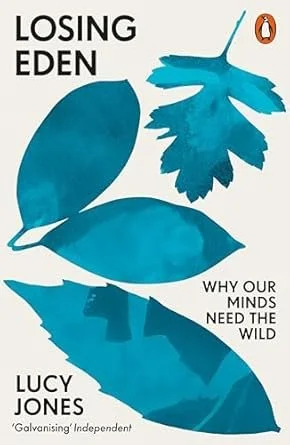Nature & Nurture: The Healing Power of the Earth and Ocean on Mental Health
June brings with it two significant global celebrations — World Environment Day on June 5th and World Ocean Day on June 8th. Both days serve as reminders of our deep connection to the natural world and the urgent need to protect it. But beyond the environmental campaigns and calls to action, there’s a quieter, more personal story worth exploring: the profound impact that the natural environment can have on our mental health.
How Nature Supports Mental Health
Spending time in nature isn’t just a pleasant pastime — it’s increasingly recognised as a valuable therapeutic tool. Research shows that time outdoors can lower levels of cortisol (the stress hormone), reduce anxiety, improve mood, and enhance cognitive functioning.
Here’s how the natural environment helps us heal:
Stress Reduction: Natural settings trigger the parasympathetic nervous system, which helps calm our “fight or flight” responses. Even a short walk in a green space can lower blood pressure and heart rate.
Improved Mood: Exposure to sunlight supports serotonin production, which contributes to feelings of well-being and happiness.
Mindfulness & Presence: Nature encourages us to slow down and pay attention. Whether it’s watching clouds move or feeling the texture of leaves, it gently draws us into the present moment.
Connection & Meaning: Being in nature can inspire a sense of awe, purpose, and belonging — something especially important when we’re feeling isolated or emotionally overwhelmed.
The Ocean’s Unique Impact on Mental Health
Many people feel an almost instinctive pull to the sea — a sense of peace or clarity that arises when near water. This isn’t just poetic; it’s supported by science.
Being by the ocean can:
Promote a Meditative State: The rhythmic sound of waves has a calming effect on the brain, similar to white noise. It helps us reach a relaxed, meditative state that can quiet racing thoughts.
Encourage Reflection: Vast and mysterious, the sea often prompts introspection. It can be a powerful setting for emotional release, journaling, or simply “being.”
Support Creativity: Open water seems to open the mind. Many people report feeling more creative and inspired after spending time near the sea.
Aid in Grief and Anxiety: The symbolism of tides, flow, and renewal can bring comfort to those processing loss, trauma, or big life changes.
Take a look
Nature as an Adjunct to Therapy
While nature isn’t a replacement for therapy, it can be a powerful adjunct. Walking sessions, outdoor mindfulness practices, or simply building more time in nature into your self-care routine can complement the therapeutic process.
If you’re working with a therapist, consider talking about how your relationship with nature can support your healing journey.
What is Eco-Anxiety?
As climate awareness increases, more people are feeling eco-anxiety — a deep sense of worry, helplessness, or sorrow about the state of our planet. If this sounds familiar, know that you're not alone. These feelings are valid and increasingly common.
Talking with a therapist can be a helpful way to work through these emotions, especially if they begin to impact your day-to-day life. Many also find that taking purposeful action — even small steps like reducing waste, supporting conservation efforts, or volunteering — can shift that anxiety into a sense of empowerment and hope.
This Environment and Ocean Day, we invite you to pause and reconnect — with the world around you, and the world within you. Whether it’s through a mindful walk, a moment of gratitude for the sea, or an inspiring read, let nature be a gentle ally in your mental health journey.
Recommended Read
Losing Eden: Why Our Minds Need the Wild
Lucy Jones explores the powerful relationship between nature and mental health, blending memoir, science, and cultural commentary. Her work speaks to a quiet truth many of us feel: that something vital is missing when we are cut off from the natural world.
“We are becoming a people who no longer look up,” she writes. “We stare down at our phones. We don’t notice the clouds, the trees, the life around us.”
Jones argues that our disconnection from nature isn’t just a cultural shift — it’s a crisis for our mental and emotional wellbeing. Through interviews with scientists, ecologists, and people living through trauma or recovery, she reveals that our brains and bodies are wired to respond to nature in deeply healing ways.
“What if we considered access to green space as a human right?” Jones asks. “What if the absence of nature was treated as a health issue?”
Recommended Listen
The BBC Earth Podcast
Sometimes we don’t need to be in nature to feel its power — we can experience its emotional resonance through story and sound. The BBC Earth Podcast does this beautifully, combining immersive audio with thoughtful storytelling from across the planet.
Each episode offers:
Intimate glimpses of animal and plant life that evoke wonder and tenderness
Soundscapes of rainforests, oceans, and arctic winds that instantly transport you
Reflections on the interconnection between species and ecosystems, often with a gentle reminder that we are part of the Earth’s story too
Whether you’re listening on a walk or while cooking dinner, these short episodes remind us that there’s beauty and balance in the natural world — and in us.
“Listening to the BBC Earth Podcast is like a breath of fresh air for your mind — a reminder that even when we can’t be outdoors, we can still tune into the wildness that nourishes us.”
This kind of storytelling can act as a form of micro-meditation, grounding us in something larger than ourselves. It’s especially powerful for those experiencing stress, burnout, or a sense of disconnection.
This Environment and Ocean Day, may you find a quiet moment to look up, breathe in, and remember your place in the living world. Nature doesn’t ask us to be perfect — only present. Whether you’re walking through the woods, sitting by the sea, or simply listening to the sound of birds, you are reconnecting. We would love to know how you connect with nature and how it supports your mental health, comment below or get in touch to share your experiences.
We think you will like…
Podcasts
Meditative Story – nature-themed episodes with storytelling and mindfulness
Outrage + Optimism – tackling climate concerns with hope and clarity
Books




